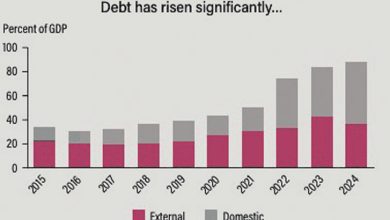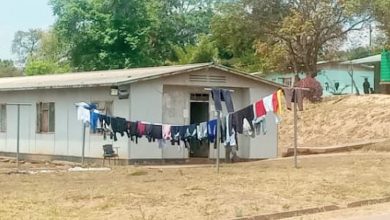Reclaiming gullies for bumper yield
Fred Usiwa’s crop yield kept dwindling as racing rainwater scrapped topsoil down the slopes of Munlo Village, Traditional Authority Ndanga in Mulanje District.
The farmer was forced to relocate as massive soil erosion left gullies, measuring over two metres deep, in a field that he had inherited from his parents.
“The loss of fertile soil worsened with waning green cover, leaving my family haunted by perennial hunger,” says Usiwa: “The run-offs also damaged crops. We often had to replant, but dry spells scorched the second crop.”
Every hectare in Malawi loses up to 30 tonnes of fertile soil per year, according to a study by the Food and Agriculture Organization of the United Nations. The lost soil—enough to fill a 40-foot articulated truck—takes over a century to be replenished, experts say.
The father of eight faced an uncertain future as the gullies grew deeper and wide near his house and in his one-acre crop field.
In 2022, the family, together with other six neighbours, left the village in search of safer farmland.

“I had no peace of mind,” he says. “The floods and gullies destroyed our land, livelihoods and belongings. We had to move.”
As trees disappeared faster than they were being replenished, streams were buried in silt and even normal rainfall triggered devastating floods in the rural setting.
The disasters worsened by environmental degradation have become more frequent and devastating with climate change.
According to the World Food Programme of the United Nations, rampant environmental degradation makes Malawi susceptible to climate-related disasters such as drought and floods that trap affected populations in poverty and hunger.
In the 2022 growing season, Usiwa and his neighbours were engaged in integrated land and watershed management activities under the Climate-Smart Enhanced Public Works Programme to build resilience to climate change.
The initiative is part of the Government of Malawi’s Social Support for Resilient Livelihoods Project, funded by the World Bank through the National Local Government Finance Committee (NLGFC).
In 2024, Usiwa’s group returned to their once- degraded land and crop fields.
The farmland is now flourishing with bumper millet, sunflower and maize, thanks to landscape restoration activities that helped them reclaim the gullied fields and improve soil fertility.
Like Usiwa, local participants in the government programme have erected rain-harvesting structures such as check-dams, eyebrow basins, deep trenches and swales in their fields and open places.
They also establish stone bunds on slopes, plant trees on degraded landscapes and care for tree stumps to sprout again.
“The run-offs and floods have become history as these structures slow down rainwater, allowing it to sink rainwater into the ground instead of washing away fertile soil. This has reduced siltation of rivers and the likelihood of flooding,” he says.
Sofina Chikwame has adopted climate-smart agriculture methods, especially manure use and mulching that helps crops withstand dry spells and drought.
“We have reduced the cost of production by making Mbeya manure using locally available materials. Soil fertility and moisture retention is being restored and crops are thriving,” she says.
Chikwame promises to sustain the land conservation programme beyond the project deadline.
Group village head Adyanyama and other community leaders have rolled out forestry by-laws to complement the communal environment restoration efforts.
“We have had enough of the gullies. We don’t want rainwater stealing our land due to deforestation,” he says.
Star Nyaka, agricultural extension officer, says the climate-smart programme has helped the rural community to appreciate how to conserve the environment for their sustainable development and food production.
“I am pleased because people are embracing modern farming methods. They are encouraged by the benefits of reclaiming gullies and increased crop yields to sustain the watershed and land management activities,” he says.
However, Nyaka urges the government to expand the social protection initiative to unreached areas in the district and beyond.





